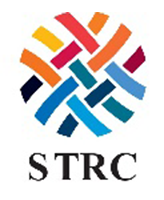The 2023 Southern Textile Research Conference (STRC) was a resounding success. The conference focused on the theme of “Approaches for Navigating a Changing Textile Supply Chain” and featured a lineup of engaging presentations that addressed various aspects of the textile industry.
The conference began with Nelson Houser delivering the Keynote Address titled “I Remember When: A Journey in Textiles.” With over 50 years of experience in the textile industry, Houser shared his insights on how the industry has transformed over time, particularly in terms of communication, travel, resources, and technology. He highlighted advancements such as the accessibility of tools and references through mobile phones, the impact of trade agreements on textile sourcing which led to a rapid collapse of USA textile manufacturing, the progress in color instrumentation and communication, the evolution of textile machinery for reduced environmental impact, and the availability of more environmentally friendly information for dyes and chemicals. Houser also noted the significant evolution of fibers and the proliferation of fiber types in the marketplace.
Thomas Scheurenberg from Navis Tubetex/Consultex presented “Application Systems – A Journey through the World of Chemical & Dye Application Technologies.” Scheurenberg emphasized the importance of precision control in applicators to achieve high quality and performance, reduce energy and water usage, and minimize waste in textile systems. He explored a wide range of options available for chemical and dye application technologies, providing valuable insights for the attendees.
Dr. Neha Kothari from Cotton Incorporated delivered a presentation on “Cotton Traceability.” Highlighting the challenges associated with tracing finished cotton products back to the raw fiber state, Kothari discussed the complex supply chain involved in cotton production across various regions, soil types, management practices, and sustainability standards. She explained the growing demand for traceability among consumers seeking sustainable choices and the regulatory requirements in certain countries for imported cotton products.
Martin Flora presented Green Theme Technologies’ “New Water-Free Finishing Technology – EMPEL™ Process.” Flora introduced a unique treatment process that imparts high water repellency to fabrics without the use of fluorinated chemistry, thereby reducing environmental impacts.
Michael Savarie from UL Solutions addressed the issue of sustainability claims and greenwashing in his presentation titled “Claiming Sustainable – The Importance of Validation through Certifications.” Savarie emphasized the need for validating sustainability claims in the textile industry to differentiate genuinely sustainable companies from those engaging in greenwashing practices. His presentation shed light on the consequences of greenwashing and the importance of reliable certifications.
Michael Schuhmann represented Archroma Textile Effects and reviewed “PFAS Free Finishing and Other Trends in Finishing Chemistry.” Schuhmann discussed the importance of protection and comfort in textiles and Archroma’s commitment to developing finishing systems that align with energy and water reduction trends while minimizing potential harm to workers, the environment, and consumers. He highlighted repellent technologies and their associated challenges, as well as recent innovations that incorporate partially biobased polymers to reduce environmental impact.
Dr. Matt Farrell from Cotton Incorporated presented “The Cotton to Sugar Project,” focusing on recycling and reducing solid waste in the textile industry. Farrell discussed ongoing efforts by Cotton Incorporated and collaborators to convert cotton textile waste into glucose (sugar) in an environmentally friendly manner. The aim is to utilize this glucose as a bio-based building block, replacing petroleum-derived products and demonstrating the circularity of cotton.
Dr. Yiqi Yang from The University of Nebraska-Lincoln concluded the conference with his presentation titled “A Dyer’s Responsibility for a More Sustainable Textile Industry.” Dr. Yang’s research group focuses on reducing the use and discharge of chemicals in dyeing processes, as well as recycling dyes and fibers from waste and afterlife textiles. He highlighted their efforts to minimize the environmental impact of the textile industry, including the reduction of salt and dye discharges using a green dual-phase dyeing system and the exploration of natural colorants from agricultural waste for textile applications. Dr. Yang also showcased the potential for fiber-to-fiber recycling, particularly for blends such as polyester/cotton, which involve disperse and reactive dyes.
The conference attendees were highly engaged throughout the event, finding the presentations thought-provoking and interesting. The venue at the Myrtle Beach Hilton provided a conducive atmosphere for interaction between the audience and speakers, accompanied by excellent food. Overall, the 2023 STRC proved to be a remarkable and successful event for all involved.
